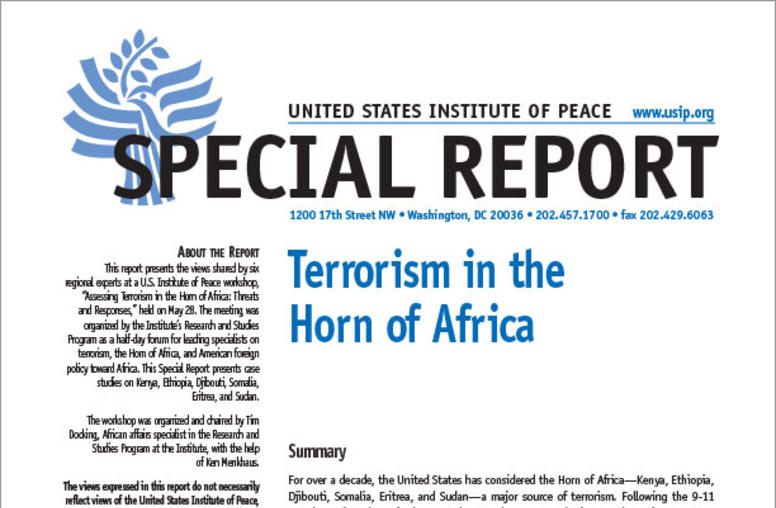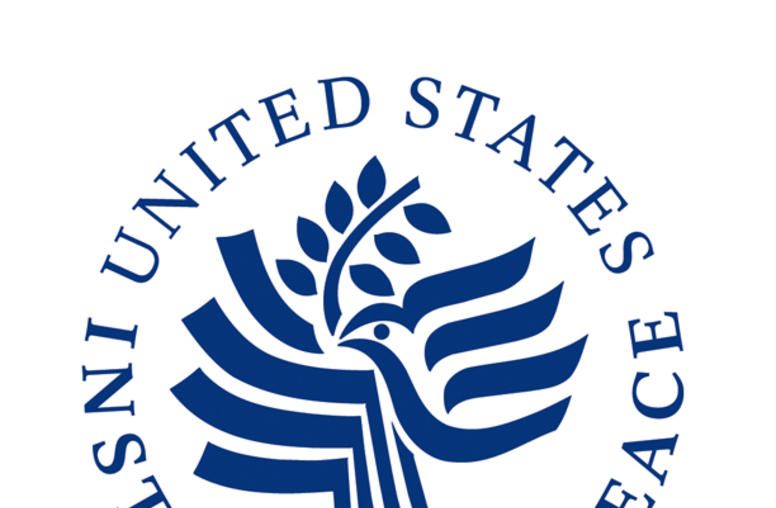Question And Answer
Publications
Articles, publications, books, tools and multimedia features from the U.S. Institute of Peace provide the latest news, analysis, research findings, practitioner guides and reports, all related to the conflict zones and issues that are at the center of the Institute’s work to prevent and reduce violent conflict.
Sudanese-Chadian Relations: A New Dimension to the Conflict in Darfur?
Following more than a decade of close relations, tensions between the governments of Chad and Sudan have risen in recent months. What impact will this fraying relationship have on both countries?
Overcoming Obstacles to Humanitarian Assistance in Darfur
Civilians and internally displaced persons (IDPs) in Darfur are increasingly being attacked by militia groups. What are the challenges of the rising insecurity faced by civilians in Darfur and AMIS? How can the GOS respond, and what are the opportunities for the international community to facilitate humanitarian assistance in Darfur?
Resolving the Boundary Dispute in Sudan's Abyei Region
A USIPeace Briefing on a recent meeting of the Institute's Sudan Peace Forum discussing the implications of the Abyei Boundary Commission report for the Abyei region in Sudan.

Political Islam in Sub-Saharan Africa: The Need for a New Research and Diplomatic Agenda
Summary An understanding of the multifaceted nature of political Islam on the African subcontinent is a precondition for the formulation of an effective U.S. policy toward the region. Such a formulation would place political Islam in a historical and contemporary context. In East Africa, discrimination against Muslims—which began in colonial mission schools and continued in education and employment following independence—played an important role in the development of political Islam...
Peace Agreements: Sudan
Comprehensive Peace Agreement Note: The Comprehensive Peace Agreement is a collection of agreements agreed to December 31, 2004 and signed, in a formal ceremony, on January 9, 2005. Included are updates and amendments to previous protocols. For research purposes, we maintain the documents which have been previously agreeed to in our digital collection, although many of these have been superceded by the Comprehensive Peace Agreement. Agreement Between the Government of the Sudan (GOS) and...
Somalia: Ten Years Later
Years of negotiations marked by bickering among various Somali factions have produced little. Recently hope has emerged that an agreement to create a national Somali government might be in sight. What are the prospects for peace?

Terrorism in the Horn of Africa
Summary For over a decade, the United States has considered the Horn of Africa—Kenya, Ethiopia, Djibouti, Somalia, Eritrea, and Sudan—a major source of terrorism. Following the 9-11 attacks against the United States, the Horn has come under increased scrutiny as a strategic focal point in the war against terrorism. In May 2003, the Kenyan government admitted that a key member of the al Qaeda terror network was plotting an attack on western targets, confirming al Qaeda's firm local ...

Sudan: U.S. Supported Peace Negotiations Bearing Fruit
Examines the Sudan peace process and the continued need for U.S. engagement in Africa.
Peace Agreements: Democratic Republic of the Congo (DRC)-Uganda
Agreement Between the Governments of the Democratic Republic of the Congo and the Republic of Uganda on Withdrawal of Ugandan Troops from the Democratic Republic of the Congo, Cooperation and Normalisation of Relations Between the Two Countries (09-06-2002) Posted by USIP Library on: March 6 2003 Source Name: U.S. Department of State, Office of Central Africa Affairs, Washington, D.C. Date faxed: December 12 2002 Annex A: Plan for the Implementation of the Agreement Between the Governme...
Peace Agreements: Somalia
Addis Ababa Agreement concluded at the first session of the Conference on National Reconciliation in Somalia, 27 March 1993 (03-27-1993) Posted by USIP Library on: March 20, 2002 Source Name: The United Nations and Somalia 1992-1996, the United Nations Blue Books Series, vol. VIII. (New York: United Nations, Dept. of Public Information, 1996), pp. 264-266. Date digitized: November 4, 2000 Agreement on the establishment of an ad hoc committee, signed in Addis Ababa, on 15 January 199...